Friday, February 4, 2011
Alpaca Foot Rot
As the name suggests, it rots away the foot of the animal, more specifically the area between the two toes of the affected alpaca. It can be extremely painful. It is contagious.
It is caused by a bacteria, found in the environment, that gets into the skin. It can affect an alpaca due to wet weather, stress, an injury to the skin of the foot or a mineral deficiency, namely zinc.
It is pretty easy to identify. In the early stages the toes appear lumpy or swollen. As it advances the foot will have a foul odor and cheesy-like discharge.
It is best and easiest to treat if caught early. The alpaca should be quarantined in a dry area while treating. This bacteria is contagious and can live off a host for 7 days.
• Clean the foot thoroughly and make sure it is foot rot.
• My vet suggests spraying/applying Iodine over the affected area for three days. Follow this by applying Otomax for several days til the foot rot is gone. This is an anti-yeast/anti-bacterial cream.
• Other suggestions are: soak in Nolvasan, apply Zinc Sulfate 10% or Copper Sulfate 20%, and/or treat with penicillin or tetracycline.
If the alpaca is not responding to treatment within a few days consult a veterinarian as serious tissue and nerve damage can be done.
It is caused by a bacteria, found in the environment, that gets into the skin. It can affect an alpaca due to wet weather, stress, an injury to the skin of the foot or a mineral deficiency, namely zinc.
It is pretty easy to identify. In the early stages the toes appear lumpy or swollen. As it advances the foot will have a foul odor and cheesy-like discharge.
It is best and easiest to treat if caught early. The alpaca should be quarantined in a dry area while treating. This bacteria is contagious and can live off a host for 7 days.
• Clean the foot thoroughly and make sure it is foot rot.
• My vet suggests spraying/applying Iodine over the affected area for three days. Follow this by applying Otomax for several days til the foot rot is gone. This is an anti-yeast/anti-bacterial cream.
• Other suggestions are: soak in Nolvasan, apply Zinc Sulfate 10% or Copper Sulfate 20%, and/or treat with penicillin or tetracycline.
If the alpaca is not responding to treatment within a few days consult a veterinarian as serious tissue and nerve damage can be done.
Subscribe to:
Post Comments (Atom)

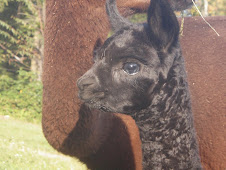
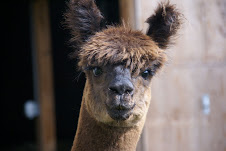
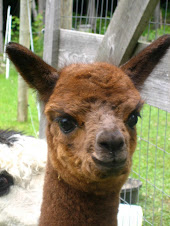
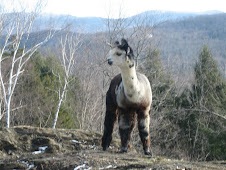

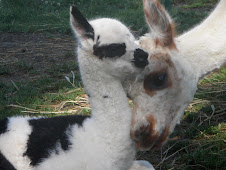
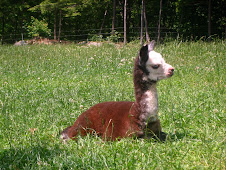

Thanks for the information. I often find there is a lot for goats and sheep but not alpacas. It's good to hear from someone who has experienced it too.
ReplyDelete